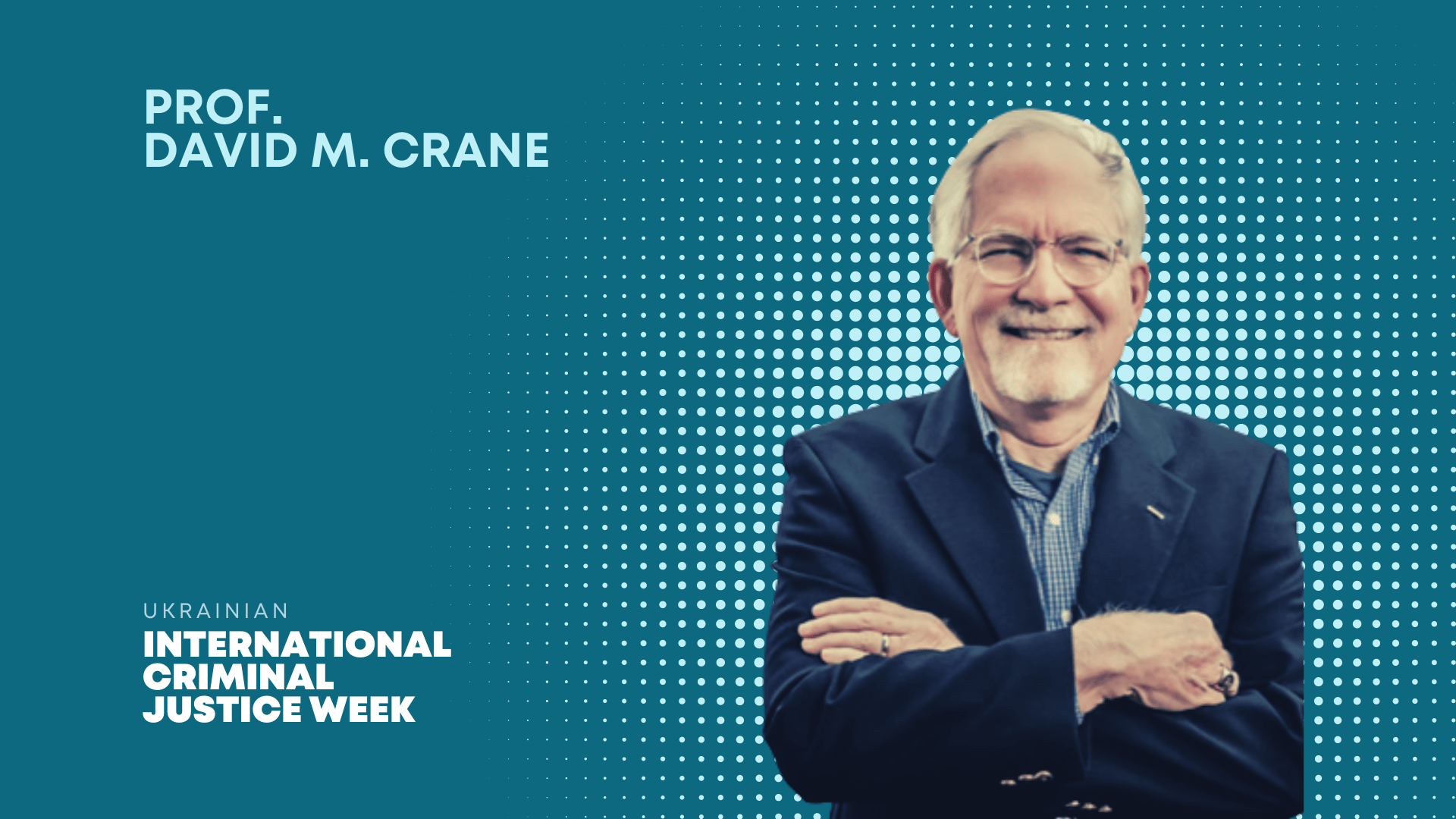Professor David Crane’s lecture on the Special Tribunal for Ukraine — Key Takeaways

Professor David Crane’s lecture on the Special Tribunal for Ukraine reinforced the significance of accountability and restorative justice in the face of Russian aggression. In his speech, David Crane, who was the Chief Prosecutor of the Special Court for Sierra Leone (SCSL) focused particularly on crimes against humanity in Ukraine and how authorities such as Vladimir Putin and military personnel of the Russian army can be held accountable for their actions.
The lecture started with Prof. Crane’s description of a historical timeline that shifted from the post-World War II “Age of Accountability” to a standstill during the Cold War, and finally to a resurgence in the 1990s. Today, we’re dealing with what Crane refers to as “The Age of the Strong Man,” an era defined by leaders exercising force without humanitarian regard. Nevertheless, a promising shift towards legal mechanisms for dealing with such violations has become clear after the start of the Russian invasion of Ukraine.
David Crane mentioned three different models to address the crime of aggression committed by Russia:
- A hybrid approach involving Ukraine and the global community. However, this model runs into the problem of state immunity when it comes to holding significant officials such as Putin and his generals accountable under domestic law.
- A Europe-focused solution, dealing with the crimes regionally. However, the application of head of state immunity in this context remains a gray area as well.
- The creation of a bilateral Special Tribunal on Ukraine, bypassing the issue of immunity.
The lecture took a deep dive into the third option – the creation of the Special Tribunal for Ukraine (STUK). The professor outlined a detailed series of steps for establishing the STUK, from gaining agreement from the General Assembly, through to defining jurisdiction, mandate, and funding, to the steps of operational logistics. Importantly, Prof. Crane underscored that the tribunal’s jurisdiction would not be limited to Russia, but would extend to other countries supporting the crime of aggression, including Belarus, Iran, and North Korea. The mandate would be to bring to justice those most responsible for the aggression and associated crimes from 2014 onwards. He noted the significant role of the ICC and domestic courts in this structure, providing valuable support and evidence to the STUK. He also emphasized that Ukrainians’ perspectives on justice should be incorporated to ensure that the STUK aligns with their specific needs and view of the justice restoration process.
As the discussion progressed towards practicalities, Prof. Crane underscored the need for thorough security precautions. Given the high risk of Russian interference, a strong security apparatus to protect buildings, personnel, and even tribunal leadership’s families would be necessary. The operational plan for the STUK involves several distinct phases, including setup, investigation, pretrial, trial, appeal, and post-trial stages. While the time frames for these are yet to be determined, each step plays a crucial role in ensuring justice is served.
In his concluding thoughts, Prof. Crane highlighted the broader implications of these actions. By holding Russia accountable for its aggression, the world would be sending a clear message to other authoritarian figures across the globe. Furthermore, not taking action would seriously undermine the role and authority of the United Nations, as preventing such aggression is fundamentally why the organization was established in the first place. Prof David Crane’s lecture provided an overview of the challenges and potential solutions in holding Russia accountable for its crimes.

